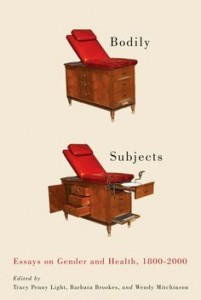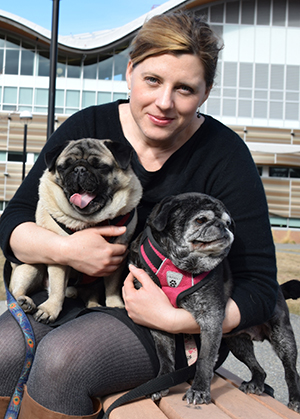Out of many treats to enjoy over the holidays, reading is one of those pleasures that doesn’t require kitchen cleanup, expensive equipment or just the right weather. All you need to find is a good writer on a subject you enjoy. Here are a few of the books written or edited by TRU faculty this year to add to your reading list.
Mourning and Mysticism in First World War Literature and Beyond: Grappling with Ghosts by George M. Johnson, English and Modern Languages, explores how iconic early twentieth-century writers—Sir Arthur Conan Doyle, J.M. Barrie, Rudyard Kipling, Virginia Woolf and Aldous Huxley, among others—embraced some form of mysticism as a means of coping with the overwhelming loss of loved ones during the First World War. Read an interview with George Johnson.
The Harbinger Theory: How the Post-9/11 Emergency Became Permanent and the Case for Reform by Robert Diab, Law, takes up where Diab left off in Guantanamo North: Terrorism and the Administration of Justice in Canada (Fernwood, 2008), tracing the changes to criminal law since 9/11 changed governments’ perceptions of the magnitude of potential terrorist threats. Listen to the CBC’s interview with Robert Diab about his book and Bill C-51, the new Anti-Terrorism Act, 2015.
Canadian History: Pre-Confederation by John Douglas Belshaw, Open Learning faculty member in History, introduces important themes in North American history to 1867. This is an open textbook, available for free in EPUB, PDF, MOBI and other formats from BCcampus OpenEd. Look for Belshaw’s follow-up text on post-confederation in the new year.
 Bodily Subjects: Essays on Gender and Health, 1800-2000, edited by Tracy Penny Light, Director of the Centre for Student Engagement and Learning Innovation, Barbara Brookes and Wendy Mitchinson, explores the historical entanglement between gender and health to expose how ideas of health are embedded in assumptions about femininity and masculinity.
Bodily Subjects: Essays on Gender and Health, 1800-2000, edited by Tracy Penny Light, Director of the Centre for Student Engagement and Learning Innovation, Barbara Brookes and Wendy Mitchinson, explores the historical entanglement between gender and health to expose how ideas of health are embedded in assumptions about femininity and masculinity.
Also edited by Penny Light with Jane Nicholas and Renee Bondy is Feminist Pedagogy in Higher Education: Critical Theory and Practice, which provides a critical context for the relationship between feminist pedagogy and academic feminism by exploring the complex ways that critical perspectives can be brought into the classroom.

Katie Sykes, assistant professor in the Faculty of Law
Canadian Perspectives on Animals and the Law, edited by Peter Sankoff, Vaughan Black, and Law faculty member Katie Sykes, provides an important new contribution to the debate on the legal status and treatment of animals in Canada. Read an interview with Katie Sykes.
Cultural Mapping as Cultural Inquiry, edited by Nancy Duxbury, Will Garrett-Petts, AVP of Research and Graduate Studies, and David MacLennan, Sociology, provides an introduction to the emerging field of cultural mapping—a mode of inquiry and a methodological tool in urban planning, cultural sustainability, and community development that makes visible the ways local stories, practices, relationships, memories, and rituals constitute places as meaningful locations.
Also check out this eclectic list of favourite holiday reading from TRU staff and faculty.

